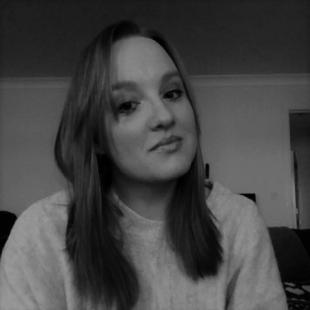Post date:
Before joining the School earlier this year, Karen was based at the University of Strathclyde in Glasgow where, in between travelling, she completed her undergraduate degree in Physics, an MSc in High Power Radio Frequency Science and Engineering, and a PhD in Space Beam-Wave Interaction Physics, before progressing to the role of Research Associate position in the Space Mechatronics (SMeSTech) Lab.
Karen took part in the following interview to mark International Women in Engineering Day 2019.
What sparked your interest in engineering? Is it the same thing that inspires you today?
I am naturally a very inquisitive person and, since I was little, think I was meant to pursue science and engineering. My mother told me that from an early age my favourite question was “Why for?!” which I would ask my parents over and over for an explanation as to why things were doing what they do, and this is still the case today!
I am always asking myself why does this happen and how does this happen. Science and engineering give me the ability to investigate and explain how things work, including the natural processes of the universe.
How would you explain your research in a nutshell?
At the Space Mechatronics Laboratory at Strathclyde I worked on various projects including an intelligent land mobile robotic system platform for agricultural and space exploration, as well as a Standard Interface for Robotic Manipulation (SIROM) for use in future space missions.
Within the Soft Systems Group I am working on a project called Connect-R. The project’s aim is to develop an industrial-scale self-building modular robotic solution which provides access to worksites in hazardous environments such as nuclear power stations.
What have been the highlights and challenges of your career in engineering so far?
There have been many highlights in my career far!
I get to meet some incredible people, including the former CTO of NASA, Mason Peck, as well as renowned engineers and scientists. I also get to work on some amazing projects involving extremely interesting and innovative research for organisations like the UK Space Agency.
I have been able to publish papers in a wide variety of journals including Plasma Physics and Controlled Fusion, Royal Society of Chemistry Advances, Geoderma (global journal of soil science) and Plasma Sources Science and Technology.
There are of course challenges that come with working in engineering, which can involve long working weeks and conducting difficult research. But for someone like me (and you!) then these challenges are overcome with the high level of interest, reward and satisfaction that come with knowing you are contributing to the engineering and science world!
Do you have any advice for the next generation of women interested in getting into engineering?
My advice would be get into it; if this is what you want to do and you have a passion for science and engineering then get involved.
Research what field you want to get into and find out which qualifications you need then work hard, be inquisitive and go for the moon shot!
It is also good to surround yourself with like-minded, ambitious people and take advice from those who have gone before you and established themselves in similar fields. Chances are they will have worked out some kinks that may come along and have great advice about how to get around them.
Remember, no two people’s paths to achieving their ambitions are quite the same, so don’t compare yourself to others. My path to where I am now was a winding one but that didn’t stop me from getting there. So keep your head down, eyes up and remember: failure is not an option!
Related information
-
Find out more about Dr Karen Donaldson's research on the Soft Systems Group website



